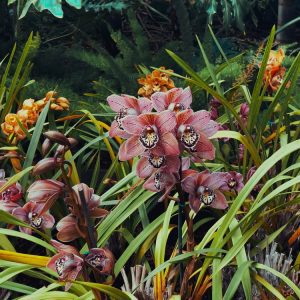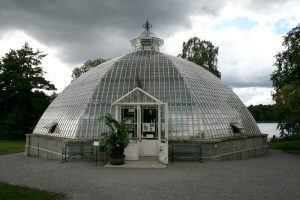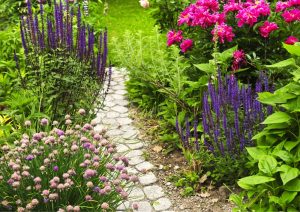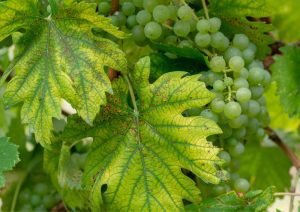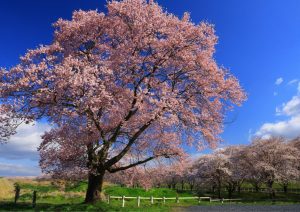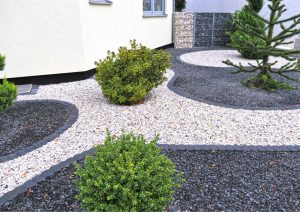Many of us live in modern living situations in apartments and smaller developments where space is at a premium. While there might be many options close to us for communal areas like parks and greens, some of us still crave the joy of growing our own plants, vegetables, or just herbs.
The important thing to remember is that it is totally possible to have a semblance of a kitchen garden no matter what space we have to work with!
The guys at Crowe Sawmills have put together the below infographic that covers everything you need to know in terms of setting up as a beginner gardener. It takes the mystery out of the equipment you might require; it outlines some plant, soil, and general gardening terminology that will help; it provides handy tips on getting started; includes some possible starter items to get going – plus lots more!
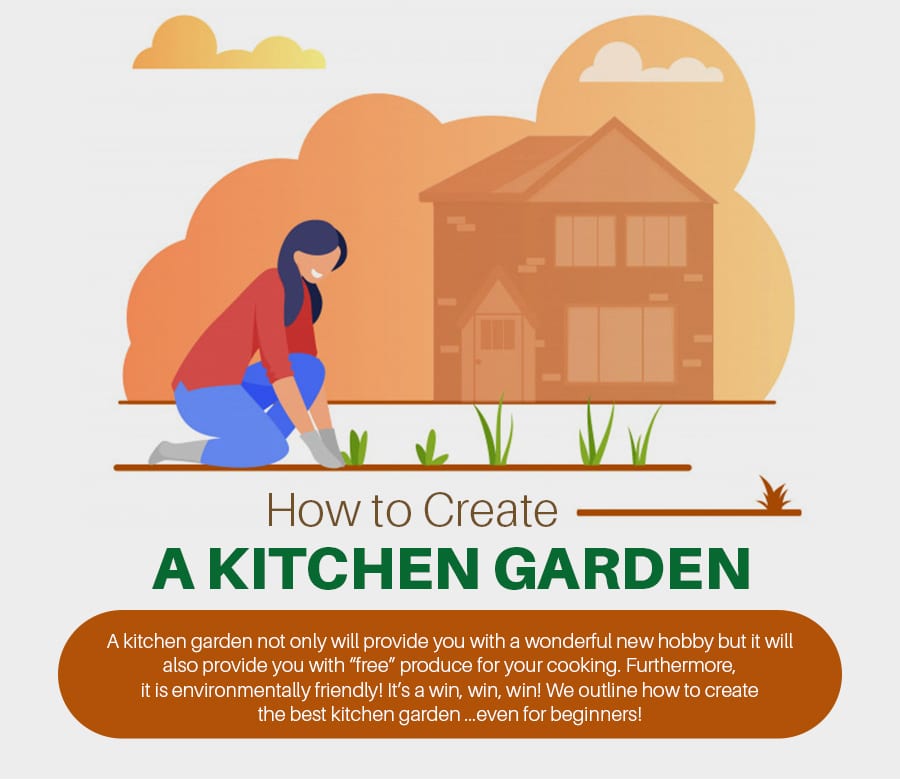
What Is A Kitchen Garden?
A kitchen garden isn’t necessarily one in your kitchen (although you could definitely do that if you wanted, like this vertical onion planter) but a garden that is close to your home. Doesn’t matter if you are growing herbs, vegetables, or fruit!
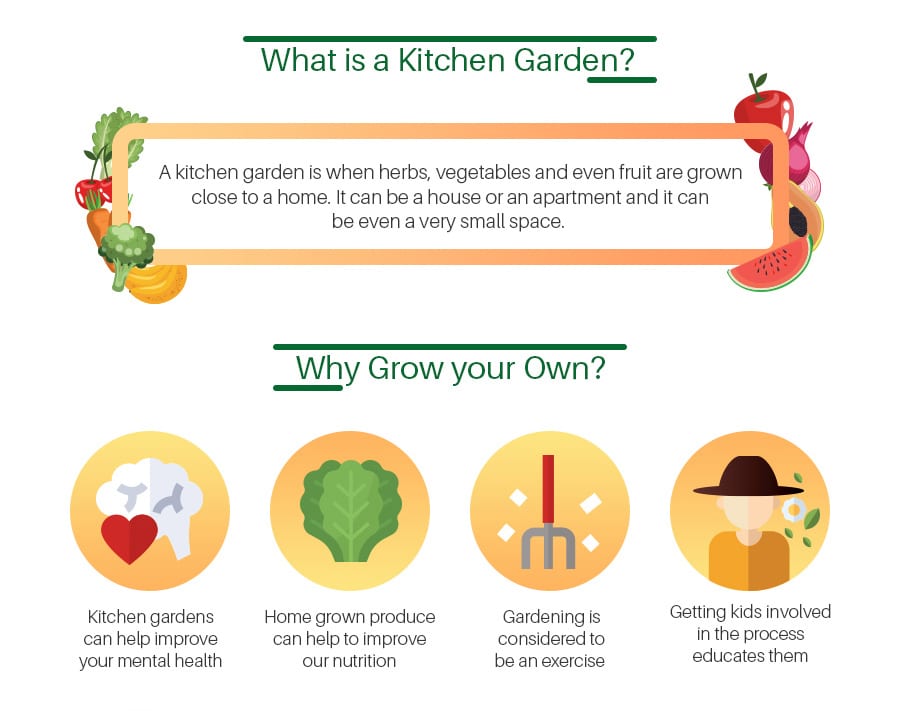
Why You Should Grow Your Own
There’s a lot of reasons why you should consider starting your own garden. Not only will you be able to get the freshest vegetables, but homegrown produce also provides better nutrition and tastes better than grocery-bought ones, too! You’ll also be saving yourself the hassle of driving back and forth to the market whenever you forget to buy something.
Gardening is also proven to be good for your mental health. Being outdoors getting some much-needed sunshine and exercise is something that everyone doesn’t get these days! You can also use your garden as a way to spend time with your kids and teach them about nature.
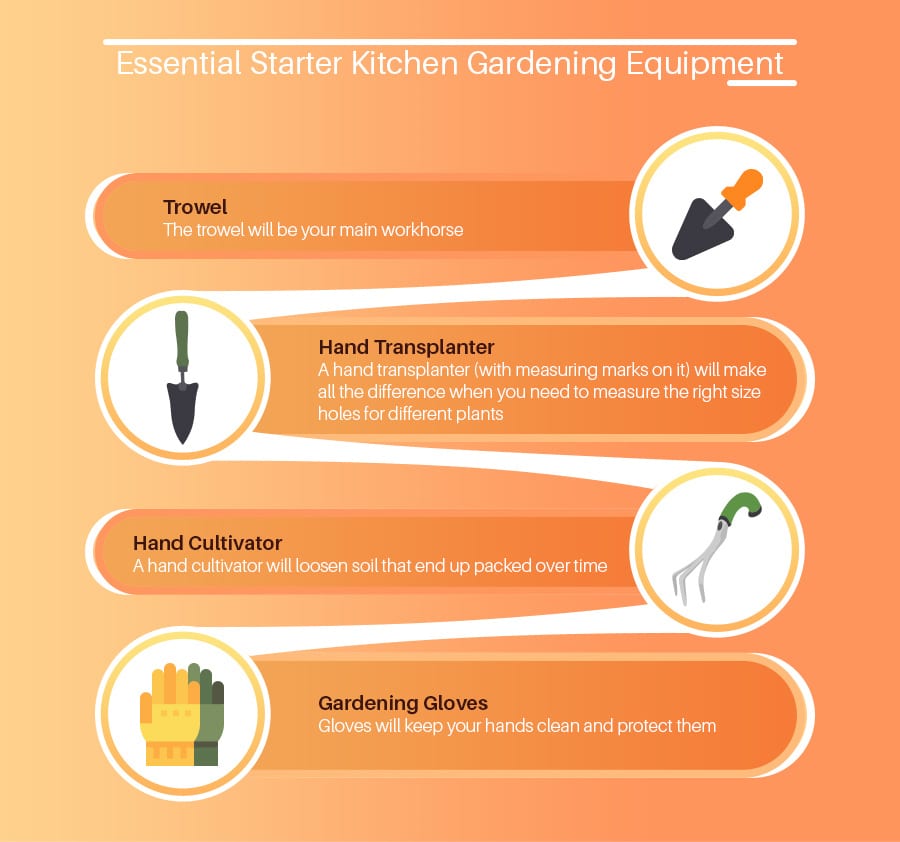
What Equipment Do I Need To Start?
You don’t need a lot to start your own garden but it’s definitely not just soil and water. The most basic tool that you’ll need and will be using a lot is the trowel. It’s used not just for digging put also for planting, transplanting, weeding, moving, and smoothing your soil.
A transplanter is a similar tool but it’s more specialized and used for planting and transplanting seedlings. If you get one with a measuring mark, it will also help you get the right measurements when digging holes for specific plants. Over time, you’ll notice that your soil has started to pack or clump together. When that happens, you can use your hand cultivator to loosen it up. You can definitely do those with a trowel but these tools make it a lot easier!
Essential Gardening Terminology
You’ve got the tools, now get ready to equip yourself with the knowledge you need to grow from a beginner to an expert gardener!
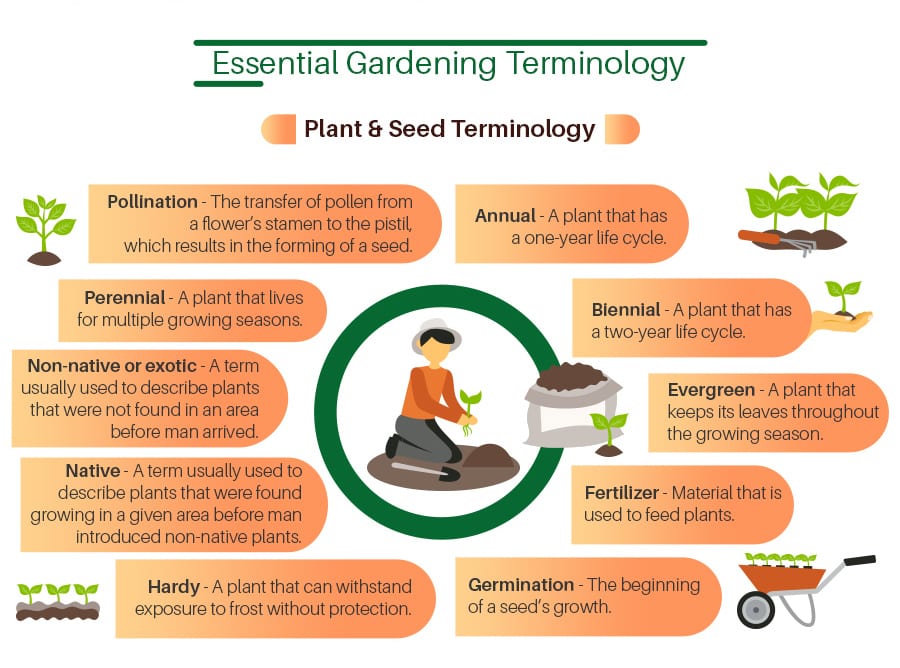
Plant and Seed Terminology
There are many ways to describe and identify what type of plant you are growing. It can be about their origin (native or exotic), their life cycle (perennial, annual, biennial), or physical characteristics (evergreen and hardy). It’s also important for you to understand the processes of pollination and germination, as well as what fertilizer is and the benefits it gives.
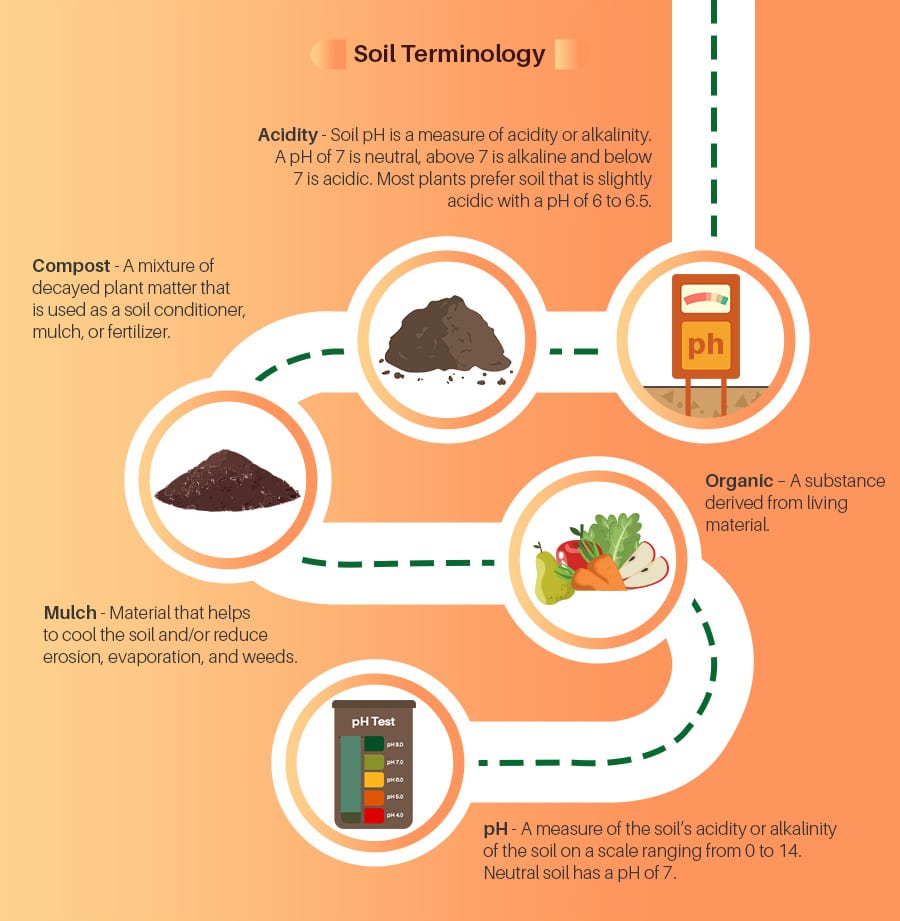
Soil Terminology
To grow a healthy garden, you can’t just pick a plot of soil and start digging. There are some factors that you need to consider such as the acidity or pH level of the soil. Different plants thrive at different pH levels so take note! Aside from fertilizer, you also need to consider using compost or mulch to improve soil quality.
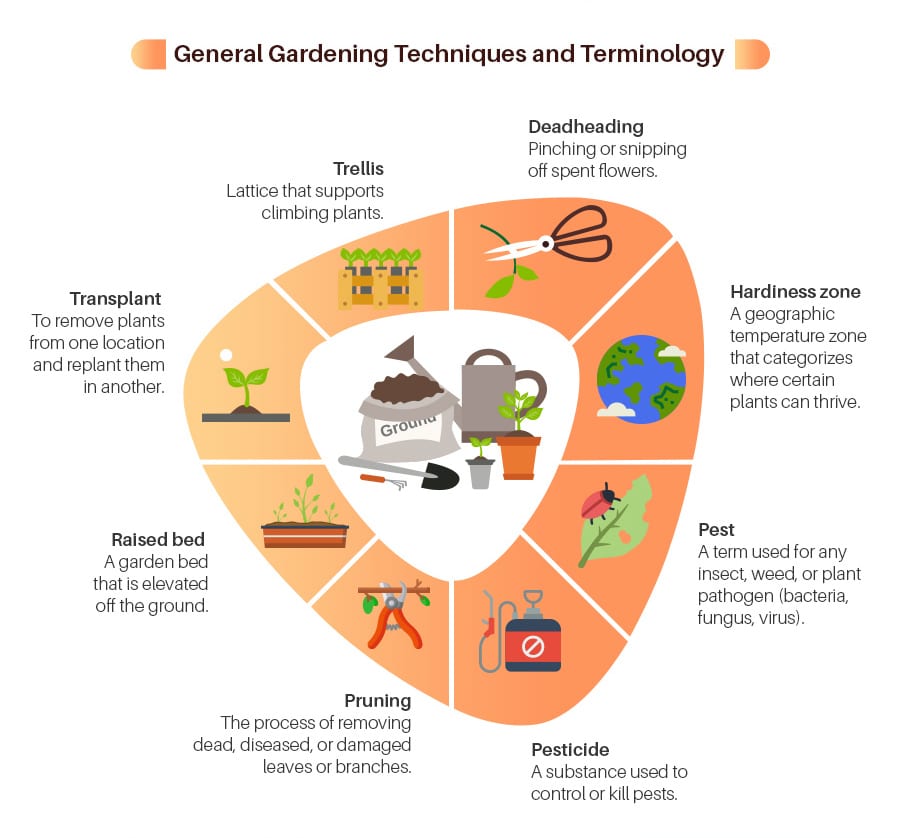
General Gardening Techniques and Terminology
Once you’ve got the basics down, you should also explore other gardening techniques that may come in useful in the future such as transplanting, pruning, and deadheading. Knowing your location in the hardiness zone is also important in order to choose which plants can survive in your garden.
You also may want to try raised beds or trellis and learn about pests and pesticides. We recommend avoiding chemical ones and using natural pest control like introducing predatory insects, pollinators, or companion planting.
Tips for Beginning Gardeners
Now that you’ve got the tools and basic terms down, here are some more tips to help you get started!
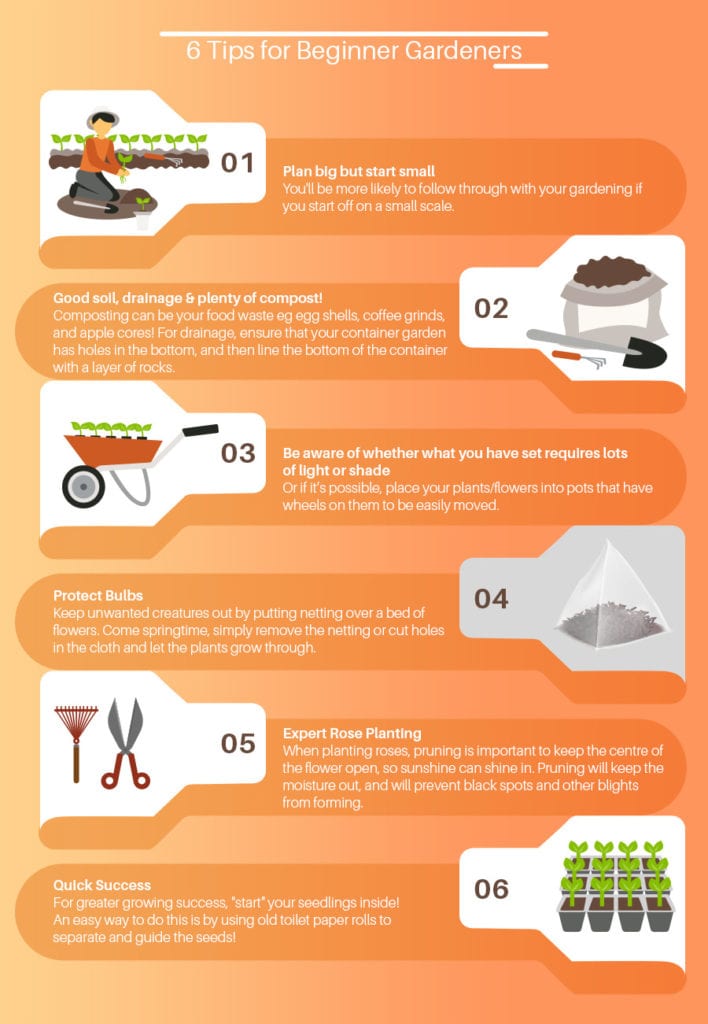
Starter Plants You Should Try
We’ve equipped you with the tools, knowledge, and tips that will help you start your first garden. All that’s left is to actually choose which plants you want to grow!
The plants listed below are some of the easiest ones to take care of but these are just suggestions. Your starter plants may differ depending on the hardiness zone you are located in.
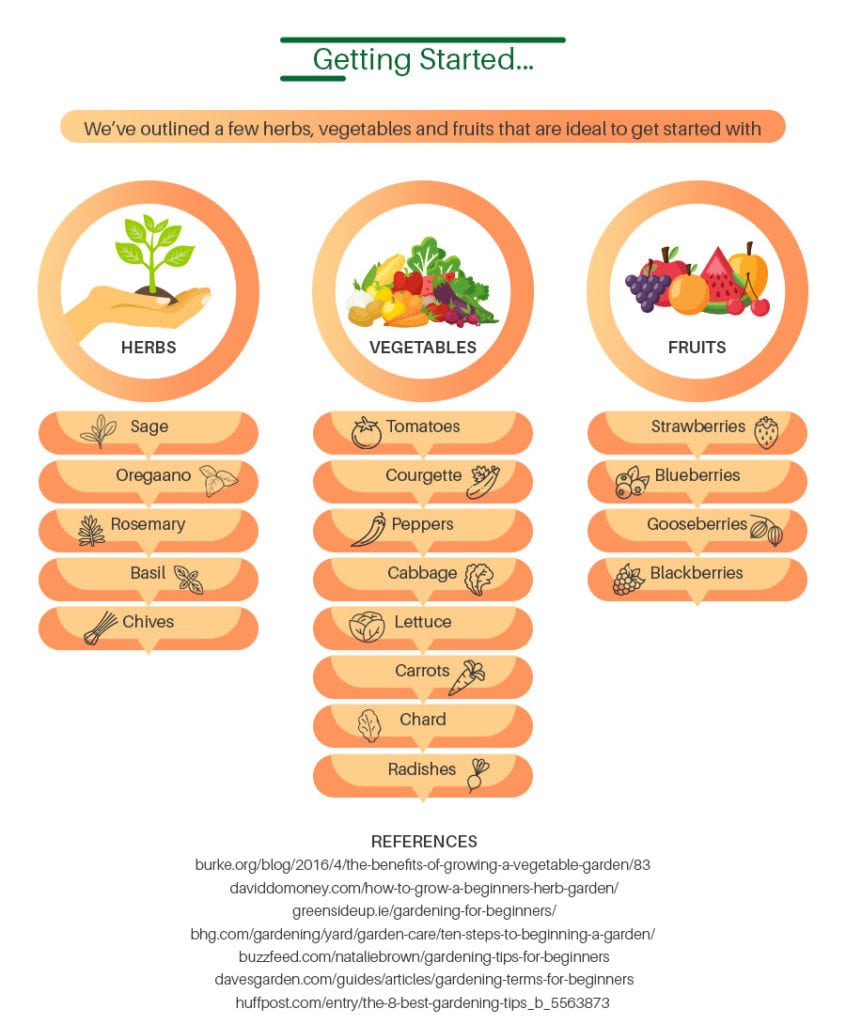
Gardening Centers
With this information, you can go forth and begin your gardening journey and be armed! Another key tip is to take advantage of the knowledge and expertise that staff at gardening centers have; they will be happy to help you when you visit to begin gardening.
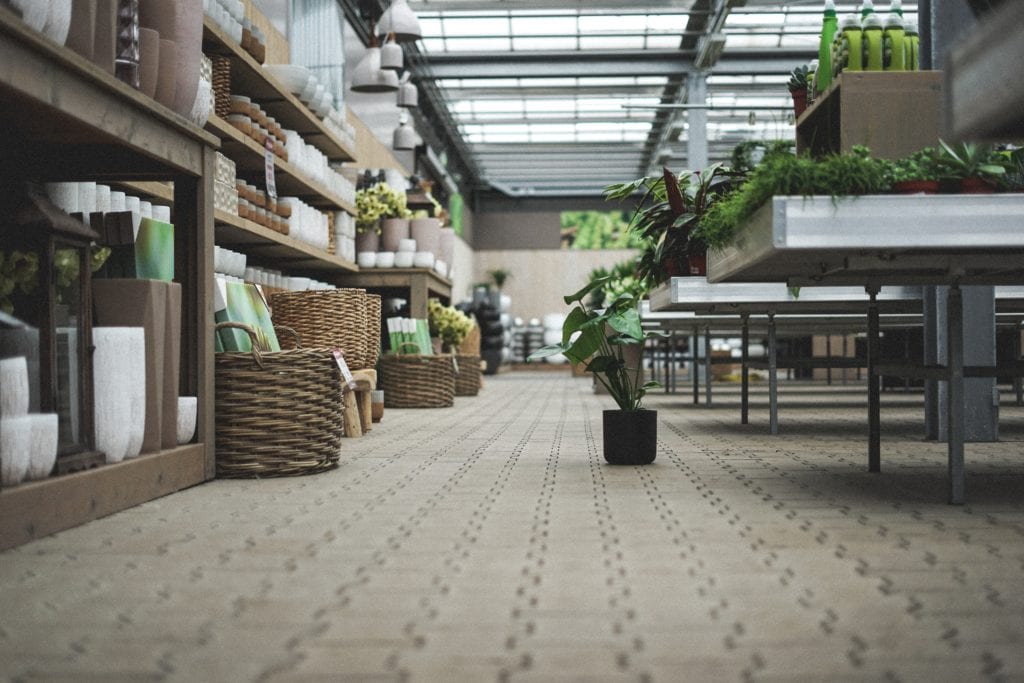
Try to visit off-peak. Saturday mornings and afternoons will be very busy in gardening centers so it might be a good idea to make a trip mid-week, for example. That way you won’t feel under pressure when asking questions from the staff.
Before you go…
It’s vital to keep in mind that if you fail with your first couple of plants to not be despondent; instead just take notes and learn from any mistakes. Maybe you watered it too much, maybe it got too much light or too much draught…it’s a learning experience, so go easy on yourself!
Are you ready to start your gardening journey?
Thanks again to Crowe Sawmills for the great infographic.

